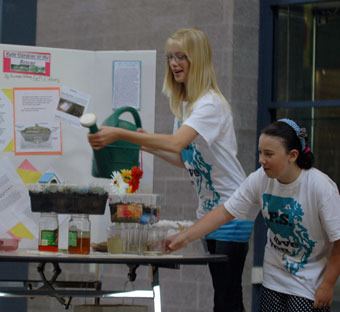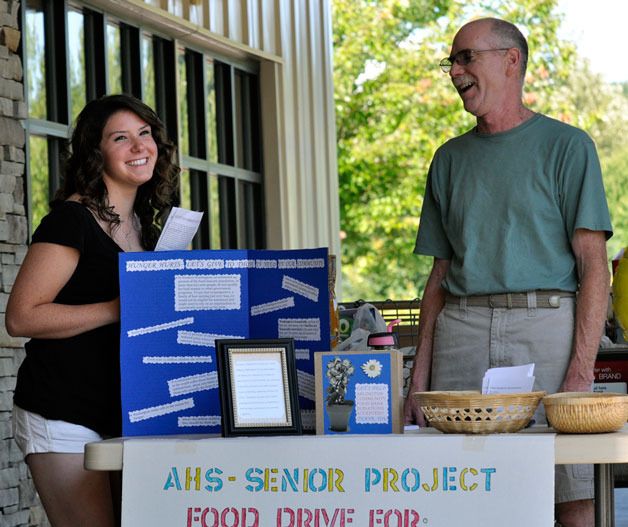ARLINGTON — For five days, 30 boys and girls participated in the environment outreach camp P.S.I Love You at Arlington High School.
The students, who ranged in ages from 11-18, learned about where water goes and what it takes with it when it reaches the Puget Sound.
“I was very impressed with how ambitious the kids were,” said camp organizer Sarah Nelson of the Stilly-Snohomish Fisheries Enhancement Task Force. “They all were surprised that our water isn’t always treated before it goes to the Sound. I think it was an eye-opening experience for all of them. They were so receptive to the information they gathered and researched.”
The first two days of camp, the students went on field trips to the Puget Sound and the Stillaguamish River. They took samples from each location and performed water quality tests. Their results were surprising. The water from the Sound failed the test while the river water passed.
“I was so surprised to learn that our water in the ocean didn’t pass,” 11-year-old Marysville Middle School student Hanna Armstrong said. “It’s very sad.”
The students also learned about watersheds and stormwater runoff. They discovered the damaging impact that artificial chemicals like fertilizer, oil and other contaminants can have on our oceans.
“A lot of what we learned was pretty logical,” student Naomi Cook said. “People don’t realize that not all of our water is treated before it reaches the ocean. We all need to realize that if we don’t start changing our ways our beautiful blue waters will turn into a gross green color.”
The students, who were divided into seven groups, were tasked with planning and implementing a community outreach project that would promote a more eco-friendly environment.
Armstrong and partners Rylee Shear, Kelsey Leech and Kaitlyn Scott constructed a rain garden model, which included a miniature home with a driveway, a parked car and a backyard. The group explained that a rain garden is a planted depression that allows rain water runoff to be absorbed from impervious urban areas like roofs, driveways, parking lots and compacted lawn. Rain gardens will allow stormwater to soak into the ground instead of flowing into storm drains, which can cause erosion, water pollution and flooding. Rain gardens can reduce the amount of pollution from reaching creeks and streams by as much as 30 percent, according to Armstrong.
The groups’ rain garden model will be on display at the Marysville City Hall in August.
“We called city hall and told them what we were doing,” Shear said. “They were very interested. We want to be very proactive and get the word out about what is going on with our water.”
The group of Cook, Victor and Dennis Gorelyy and Natalie Levesque also designed a rain garden. But while on their field trip they noticed people walking in the gardens. So, they gathered rocks and placed them in the garden in order to deter people from trampling in the area. They used eco-friendly paint to decorate the rocks, which will be placed in the Arlington City Hall rain garden.








